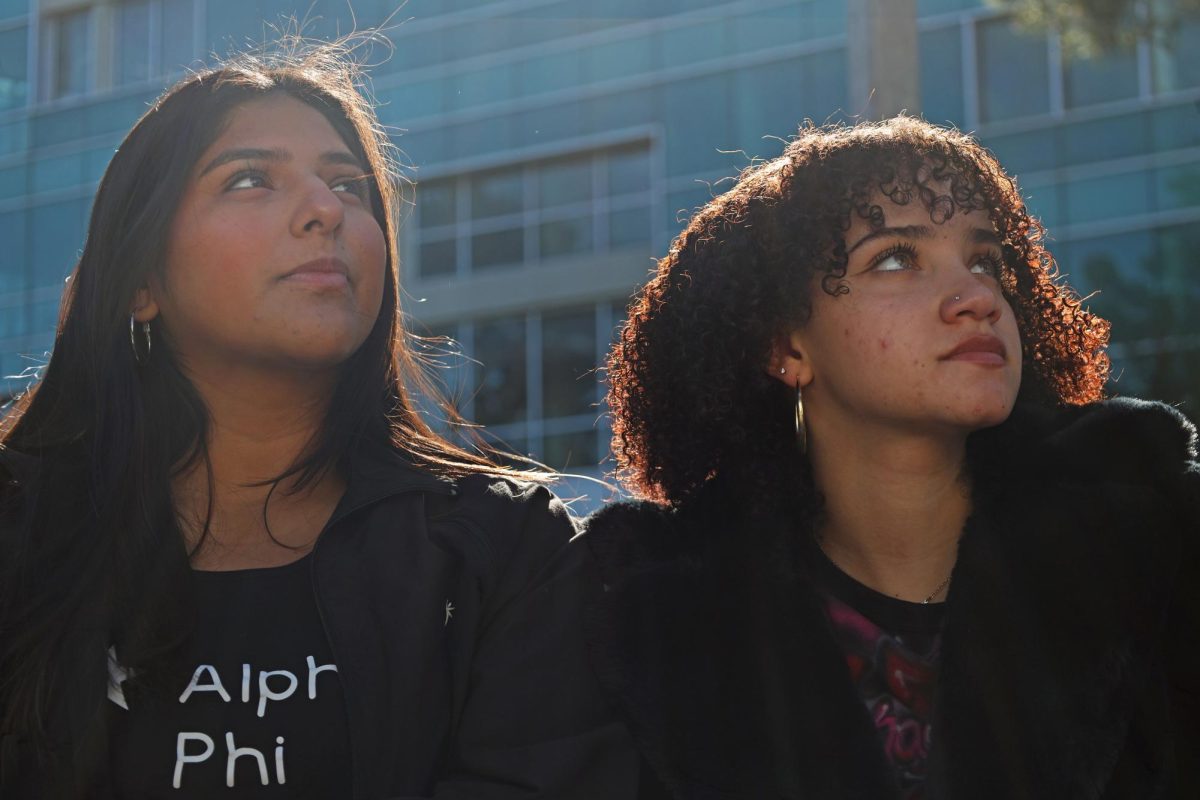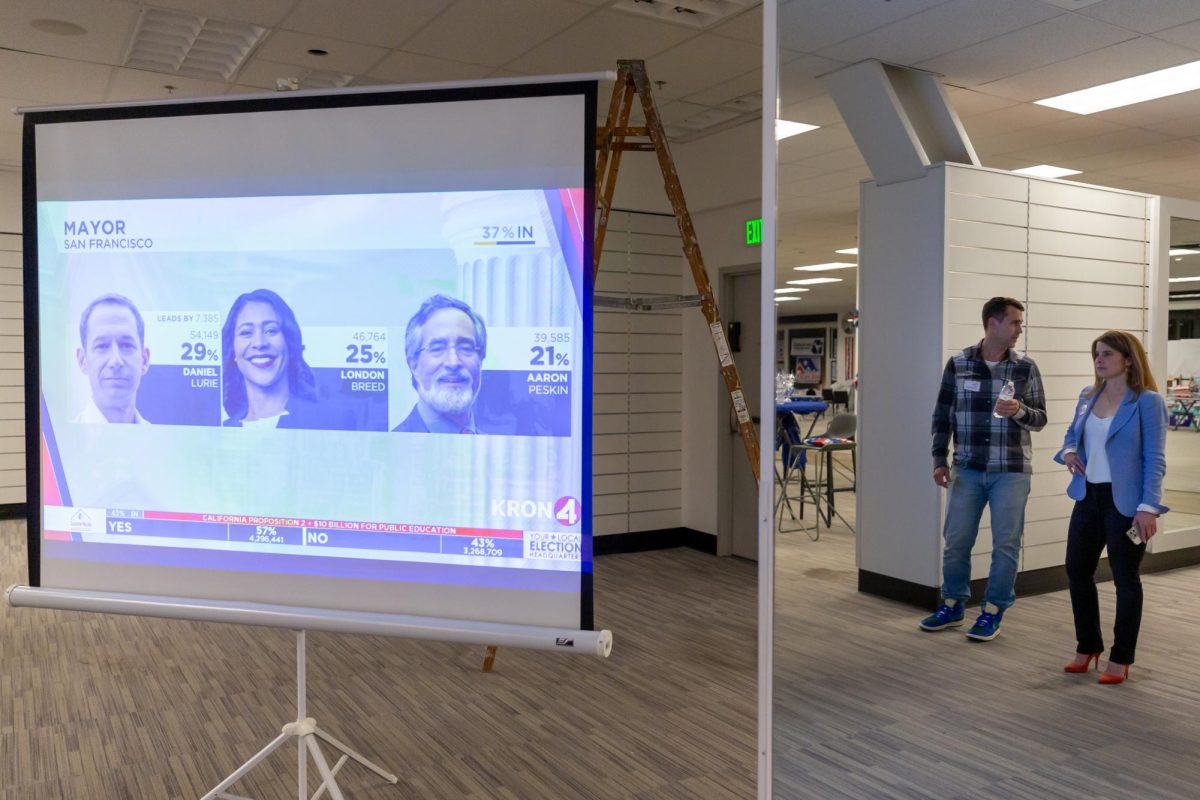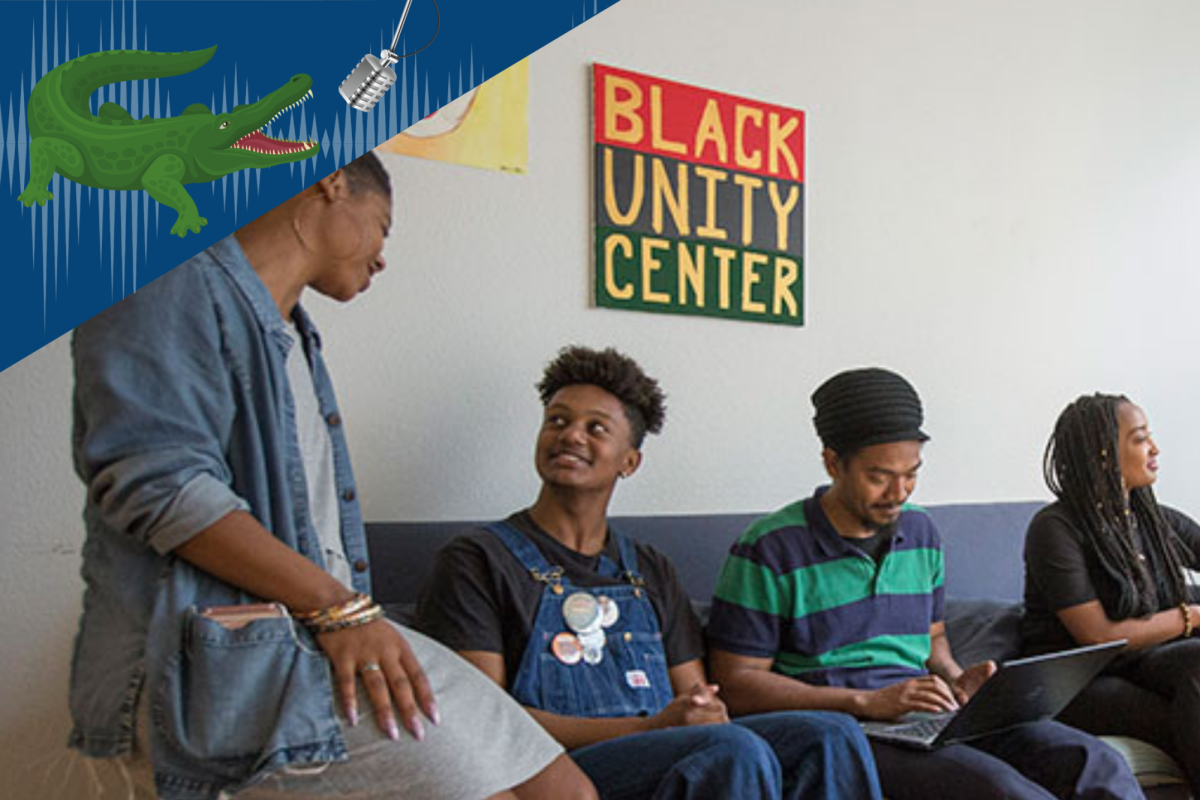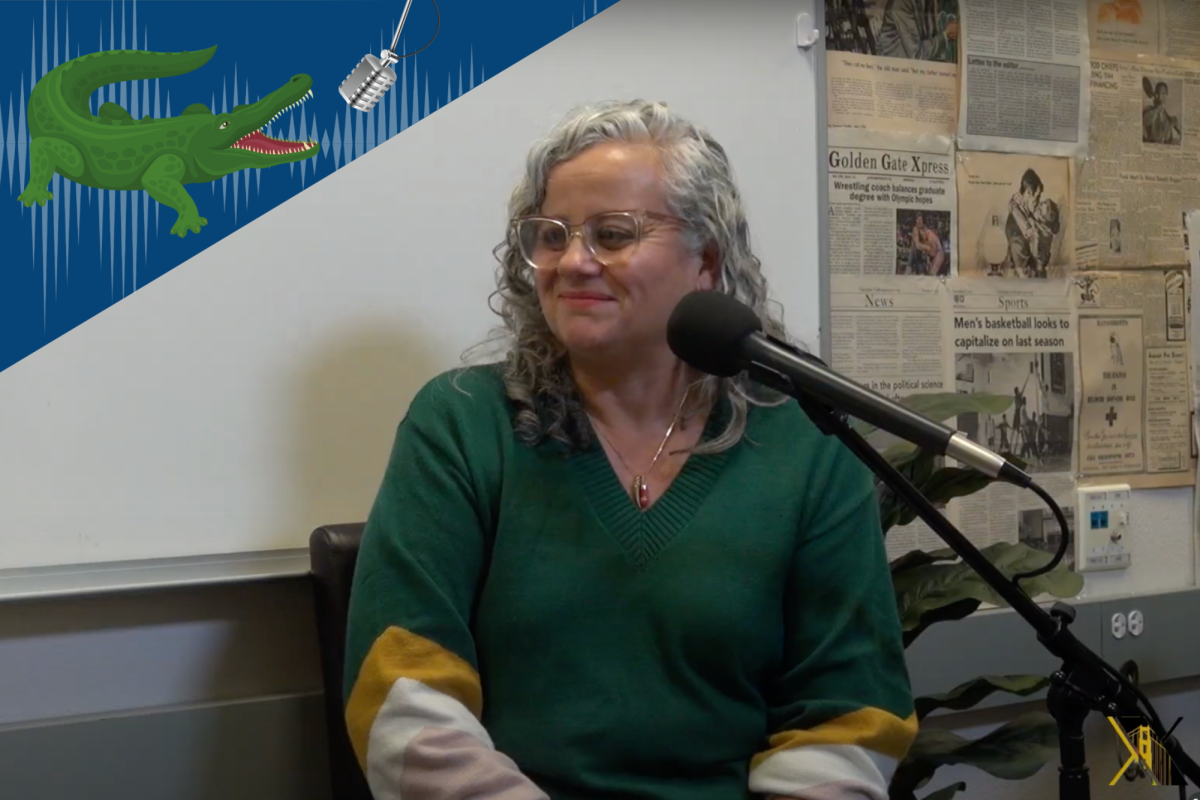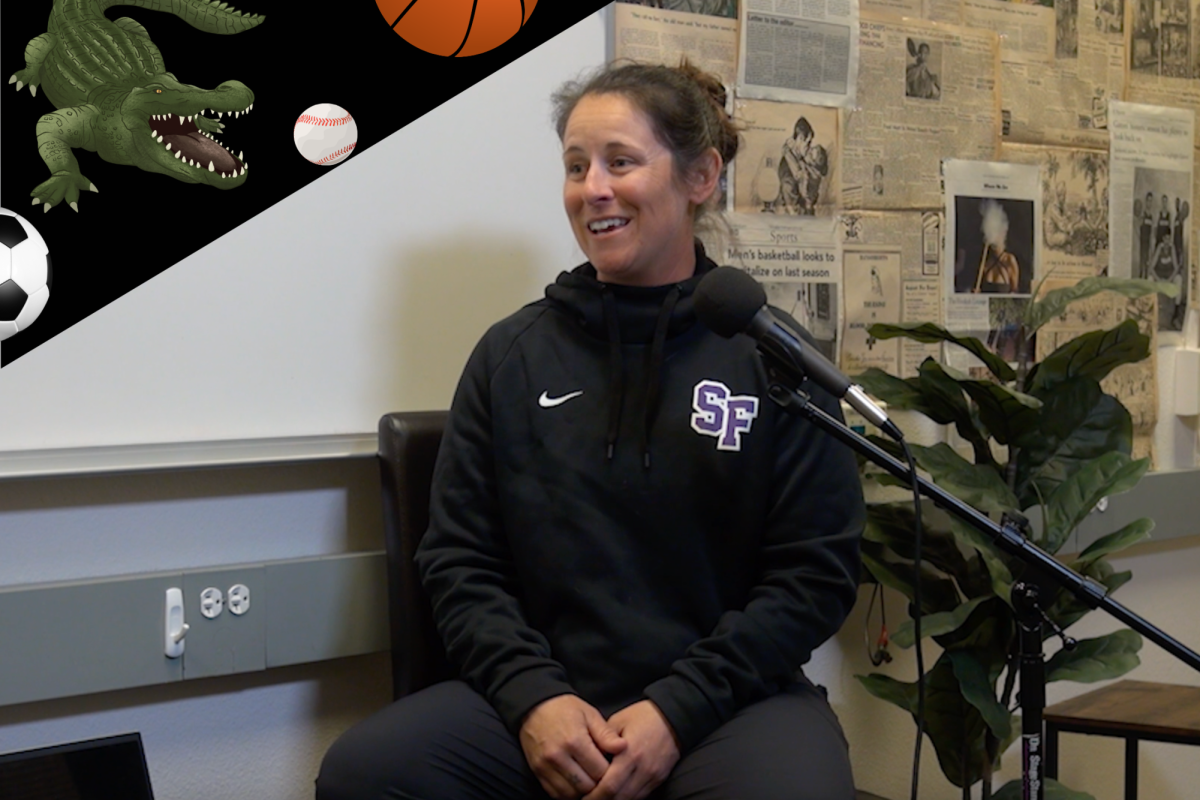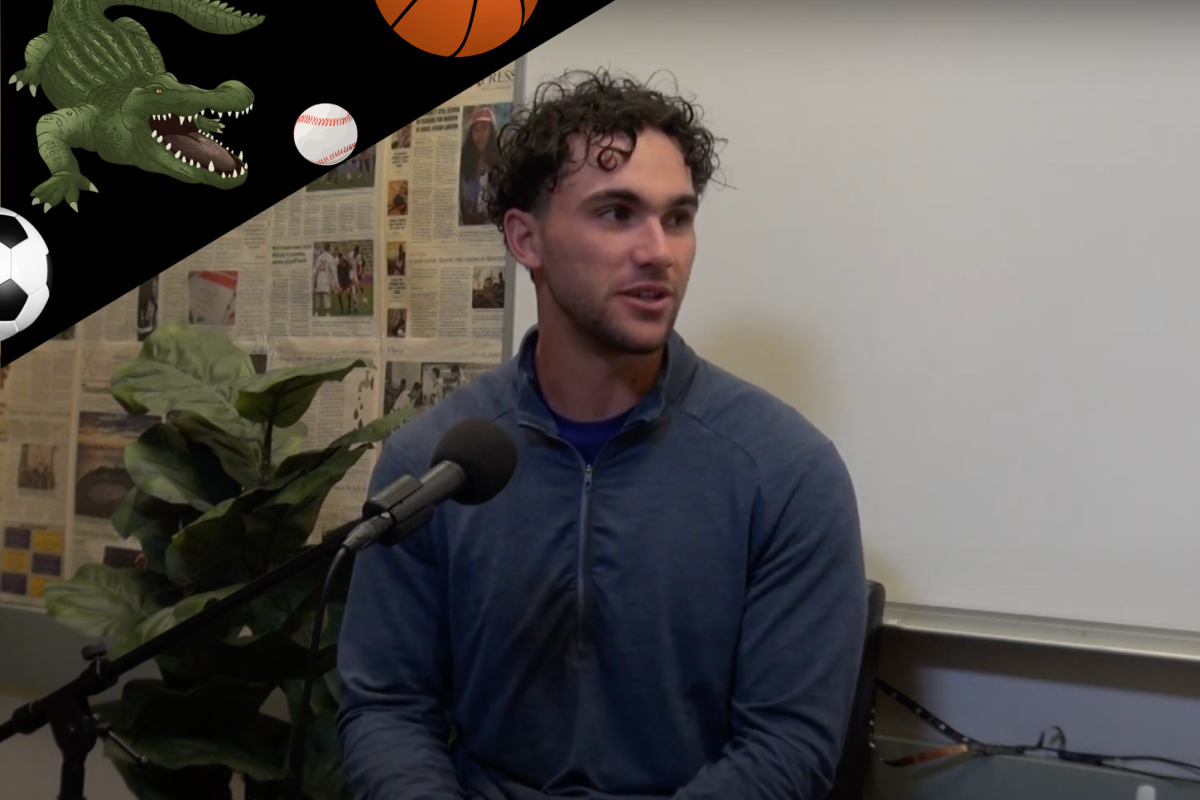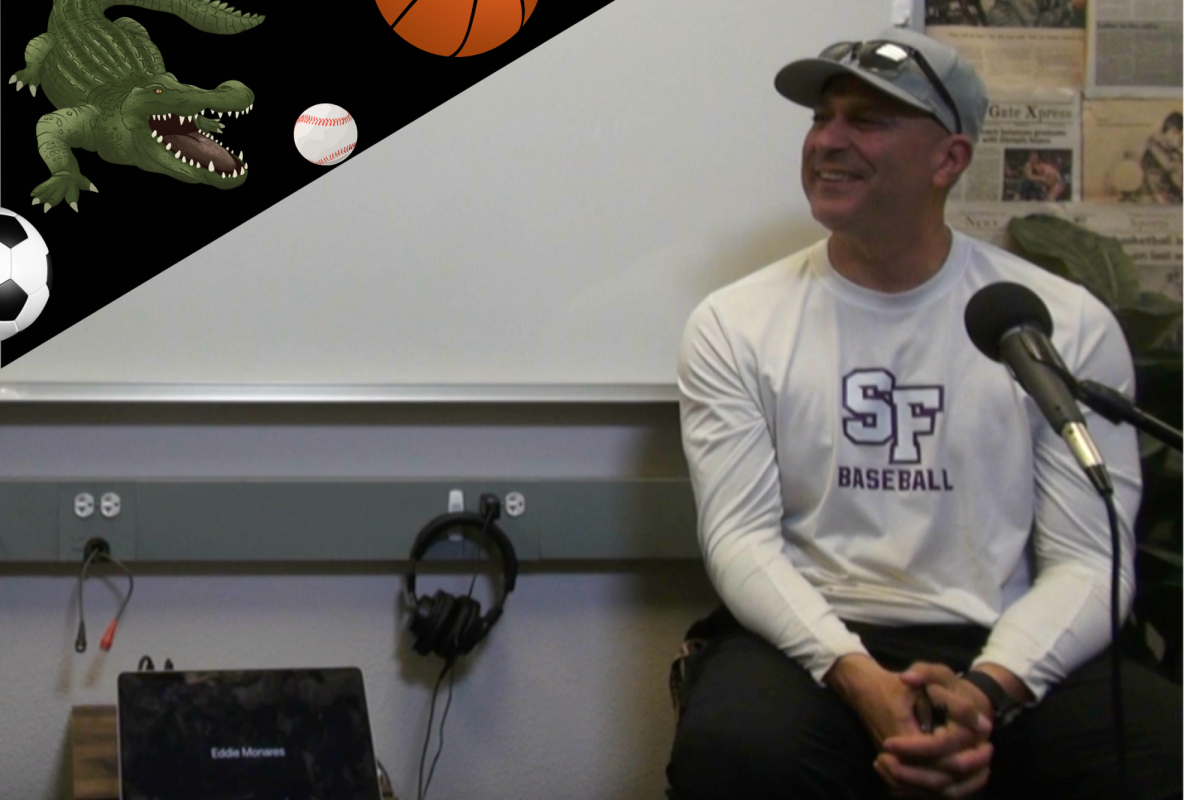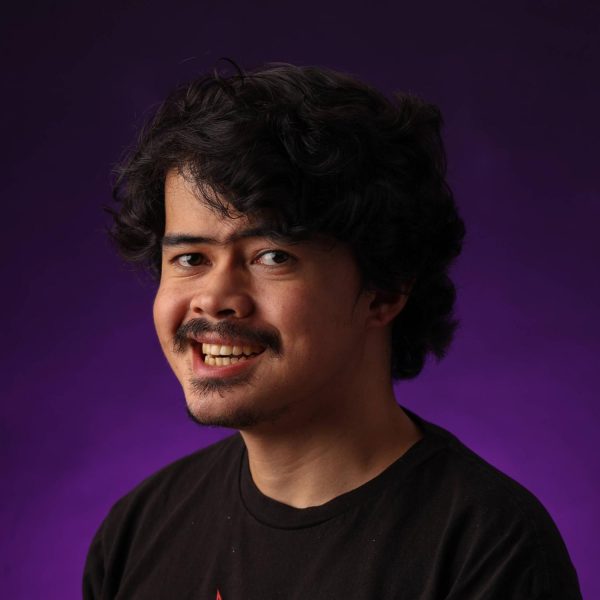Intro
Gibran Beydoun
00:00 – 00:25
Hey Gators, welcome back to Gator Talk. My name is Gibran Beydoun and I’m a staff reporter for Golden Gate Xpress. I’m joined today by political science professor Jason McDaniel, who teaches here at San Francisco State. We will be going over a variety of topics, including the importance and impact of local elections, San Francisco’s role and influence in politics, the mayoral race and the supervisor race for district seven. Let’s get started.
Interview
Gibran Beydoun
00:30 – 00:34
Why do local elections matter? And why should the younger generations, especially students, pay attention to them?
Jason McDaniel
00:35 – 01:13
Yeah, I actually think it’s important because, I’ll start on the downside of that, like young people tend not to participate in local politics. Voter turnout for younger people is much lower at the local level than it is at the national level. I guess I’ll say this way: elections matter and politicians really do try to respond to what the electorate wants and the more young people are voting, the more their concerns are going to be heard by politicians. So, if you want to change things, one way to do that is voting in elections and I think young people just tend not to be as interested in local politics. They don’t vote as much in that and so therefore their vote matters less than it should.
Jason McDaniel
01:14 – 02:00
When I talk to students sometimes, they often feel like they’re supposed to know more about politics than they do or about the issues than they do. They’re almost like… they don’t get involved locally or even at all because they feel like they don’t know enough. And what that means is, and I think this is a problem that older people cause, which is that there’s this sense that you’re supposed to know a lot in order to have a say in things. That you shouldn’t vote unless you know all the issues or if you’ve taken time to weigh the issues and deliberate and everything. That’s actually probably wrong, like older people don’t do that as much as they think and young people know often more about issues than some of the older people do. We don’t have — our elections are not partisan, meaning there’s no party labels on the ballot.
Jason McDaniel
02:01 – 02:27
In San Francisco and in the Bay Area, it’s generally Democrats running against each other. But they don’t run as Democrats. So the differences, the cleavages, the conflicts are sometimes organized around ideological, what’s called ideological points of view. Sometimes, like, in San Francisco, they talk about the progressives, which are more on the left side and then versus what are sometimes called the moderates, which are just mainstream liberal Democrats.
Jason McDaniel
02:28 – 03:21
But voters, people, politicians, people like me, journalists, will use those labels but they don’t necessarily mean what they think they mean and voters don’t always know what those things mean. They might think of themselves as ‘My values are liberal’ or ‘progressive’ or whatever but that doesn’t necessarily mean it matches to the local issues so there’s a mismatch there. In fact, in my field, we have debates about whether ideology really is a thing that the way most people think it is, like you have to have a defined point of view about the world, conservative or liberal or left or progressive in order to understand politics. We find that’s probably not really true. Most people identify with those labels and it’s more about your age or racial ethnic background, or where you’re from, or maybe if you [have an] immigration experience in your family or yourself. It’s these identity things that matter more than so-called ideology.
Jason McDaniel
03:22 – 03:47
Let’s put it this way. There’s research that shows that voters are not really good at telling you which candidate is more liberal or more conservative or whatever based on hearing their policies. But if you give them a party label, you tell them, this is a Democrat, this is a Republican, or this is a democratic socialist or libertarian or whatever, then they go, ‘Oh!’ That’s information that helps them like Democrats are usually more liberal, Republicans are more conservative. They’re able to tell which candidates are more ideological only once they have information about their party, usually.
Jason McDaniel
03:48 – 04:52
Sometimes with policies. Policies are not as clearly like left or right or liberal or conservative as most people think. In local politics, we don’t have the parties. So if I tell people the issues, they might not know what that means in terms of this person’s more progressive, or this person’s more liberal or moderate, or whatever. It’s more about a different kind of thing, about is this person trying to change the system, or are they more like working with the system — it’s vague things like that. And it’s hard to use those things to learn what the positions maybe someone might want to have. So it’s just very difficult and we make it more difficult by not having these party labels so it’s harder for young people to come in there and go, ‘Oh, well, that’s who I support because of these things,’ because it requires just more information, more research. And that’s not a great thing. It’s a big part of the reason why young people don’t vote as much in local elections is there’s no clear sort of labels to help people orient themselves, to help them understand which what’s going on a little bit. It’s not so easy to do that so, yeah.
Gibran Beydoun
04:53 – 05:00
So it’s almost like they don’t see… I guess I could put it this way: they don’t have, like, a certain label that they could be like, ‘Okay, this is who I’ll go vote for because it aligns with me.’
Jason McDaniel
05:01 – 05:49
Yeah and what we do is — all of us do this — but we sort of then use what the candidate might look like or their racial ethnic background or gender or maybe their business or lack thereof, their experience…. we use familiarity to guide us more than policies. Most people are not really thinking about policies when they’re choosing candidates. This is true for national and local elections. It’s more so at the local election, [at the] local level I think. It’s why, by the way, like I think the most dominant force in local elections is actually homeowners. People don’t think about it that way but homeowners as a group, have a real strong influence on local politics because they vote and because they care about certain issues a lot more than others do. Politicians are really afraid to piss off homeowners. And, I would say some other reason to get young people involved is maybe to change that a little bit.
Gibran Beydoun
05:50 – 06:02
How does the situation with the RVs and the residents who had to move out from Winston Drive and then from, I believe, a parking lot near the [San Francisco] zoo. How does that kind of illustrate the effects of local politics? Like, how does that paint a picture for voters?
Jason McDaniel
06:03 – 07:56
It’s interesting because it’s an outgrowth of the larger kind of debates on homelessness and the cost of living and building homes. It’s not exactly the same thing but there’s been a lot of advocacy for during the pandemic and afterwards, for protecting the right of certain people to have encampments and build tents, and then having the city be responsible for providing shelter and housing… they don’t have enough. Some of that became also, well, we’re going to suspend those sort of normal rules, let people park RVs and be there permanently as a sort of emergency measure. That’s the way at least I understand the sort of encampments and the RV parking but it became a kind of permanent thing for a variety of reasons, but one of which was that the city was sued by the organization, the homelessness coalition, which is a group that’s affiliated with the more left progressive part of San Francisco politics to prevent the city from engaging in sweeping tents and towing RVs and that kind of thing. A judge ruled on that and issued an injunction to prevent the city from actually removing encampments. The judge cited that because the city has to have enough housing to offer all homeless people before they can do any — so it’s not just enough to offer any of them shelter or housing, it has to be everyone. This was a pretty, I’m not gonna say radical, but it was a pretty surprising interpretation by this judge. This lawsuit was appealed by the city, by the city attorney, David Chiu, and with the support of the mayor, London Breed. It went all the way up to the Supreme Court and the Supreme Court ruled against the homelessness coalition and empowering cities, San Francisco included, to remove encampments and that, I think, applied also somewhat to the RV situation, not exactly the same but somewhat. That’s been the situation. It’s been a little bit frozen for a couple of years. And so it’s only been last year, and especially since this Supreme Court decision, that the city has been able to then do that.
Jason McDaniel
07:57 – 09:54
Now, why the city has been doing that is because a lot of voters, a lot of whom are homeowners, that sort of visible homelessness — and I think the RVs are a part of that — in public spaces that were reserved for, like sidewalks or parking spaces… that really disturbed a lot of people. We can decide whether that’s the right thing or not but a lot of people were very disturbed by it, sort of visible homelessness that seemed to be somewhat permanent. I think a lot of people, I might criticize them for that but the idea of sort of visible, seemingly semi-permanent homelessness, tents, houselessness, that kind of thing, combined with the idea that a lot of people feel like San Francisco spends a ton of money on this. This idea of like, where’s the money going? Why is it not working? You know, the politics gets pretty complex there. I think the majority of voters in these last few years have decided that enough is enough on that. Politicians have been reacting accordingly. Not all of them but a lot of them. This is that electorate of homeowners, older people, that have basically felt like the city needs to be more aggressive and not having the presence of visible homelessness, within a liberal kind of thing, still providing services and healthcare and shelter, options and everything but there’s some complexities there. I think that issue, public safety, homelessness, that kind of, fears and psychology of those issues is what’s, sort of, driving a lot of voters right now. I think it’s going to matter in this district election as well. That plus the idea of businesses closing, maybe because they can’t afford the high rents that are being charged. So, that cost of living businesses having problems visible, either homelessness or tent encampments and RVs, all of that. Some people feel like it’s immoral to remove these people. Others think it needs to happen, and it’s anti-social to have all of these — so it’s a very complex issue and I know SF State students probably have a variety of opinions on it.
Jason McDaniel
09:55 – 10:29
But Myrna Melgar, as a part of the Board of Supervisors, has been making some votes on these issues. It’s tough for her, I think, because a lot of people in her district probably really don’t like that sort of thing. Don’t like the RVs, don’t like tent encampments, and support more aggressive action. Melgar has somewhat allied herself with the more left progressives who are trying to somewhat, if not resist more aggressive action, at least temper aggressive action and somewhat oppose it. So that’s been a major issue, I think, for Melgar and the city as a whole.
Gibran Beydoun
10:30 – 10:34
What are some common reasons why voters may underestimate the importance of local elections?
Jason McDaniel
10:35 – 11:01
It’s interesting that our national politics to people, it feels so important. And it is, but especially in the modern era, where we seem to be having existential fights every election between a kind of right-wing, kind of Trump party, Republican Party and Democratic Party that’s resisting that. The Constitution feels at stake for some people. The COVID-19 pandemic, there’s wars going on. What’s going on in Israel and Gaza —
Gibran Beydoun
11:02 – 11:04
— And then Project 2025 also.
Jason McDaniel
11:05 – 12:00
All of that. Which for me, it just feels like a fundamental bite over what the country means and what the Constitution means. That stuff is intense and it’s stressful. I mean, even before, in 2016, issues of, in the way in which I think Trump has made more viable, the idea for his party to be very, very anti-immigrant, anti-immigration, not just quote, unquote, illegal immigration or undocumented. It’s very much like being cruel to immigrants and immigration and migrants as a way of, that’s the main political project that he is interested in and his party seems to be interested in, combined with overturning elections and eroding the Constitution. It’s just incredibly important and of course, people will care more about that. What’s interesting, though, is that that stuff seems to also matter for local politics. It’s not the same exact issues, but there’s a lot of stuff where people are bringing the same, they think about local politics in similar ways as national politics. It’s called the nationalization of local politics.
Jason McDaniel
12:01 – 13:23
We used to say in my field, ‘All politics is local.’ It’s a very common phrase. It meant that whatever’s going on in Washington and people are fighting about, if you forgot about your local district, your local home, your city, you’ll probably lose. Now, it’s like all local politics is also national. So issues of like trans rights or immigration or gun control or, even protests over wars and that sort of thing. That’s happening at the local level too! That’s a main reason why I think people should care and often care more about national than local. But I also think local matters to the national, and vice versa. I think that matters in our mayoral election as well. I think you’re seeing, if you’ve been following the debates, or even the Democratic convention speeches, you’ve heard Democratic politicians talk about the cost of housing, talking about building more housing. They talk about this YIMBY versus NIMBY thing, the idea of like YIMBY supporting building more to lower the cost of housing or to at least control it, versus NIMBY, opposing building new housing. That’s becoming an issue for national Democrats as well and that’s filtered up from San Francisco. A lot of that stuff started in San Francisco. Those movements about building more housing, the YIMBY movement, started almost basically in San Francisco. It matters and I think people on the national level care about San Francisco politics too. I get questions about Kamala Harris all the time and Nancy Pelosi. Our San Francisco politicians are influential in California and in the nation and in the world. So I think that’s one reason why people should care.
Gibran Beydoun
13:24 – 13:33
It’s almost like our city is kind of like, from our conversation so far, it seems like San Francisco, in a way has been a blueprint of influence for everything that’s happening at the higher levels.
Jason McDaniel
13:34 – 14:35
I think you’re right. Blueprint is a good word. It seems to be like, what happens here starts to eventually start happening in other places. And, it filters out. I think you’re seeing that now in national politics, it’s mirroring a lot of the conflicts that have happened in San Francisco over the last few decades. And if you can succeed in San Francisco politics, that means you probably have developed a lot of skills in a very competitive, intense environment that will be helpful as you try to maybe go up to be influential in California or nationwide. But the issues people care about here speak to issues that people care about in other places as well, which has not always been the case. San Francisco’s still thought of sometimes in other parts of the country as this weird, extreme place that people are just super liberal and everything. But like, what seems to happen is issues happen here and then they become important in other places. We saw that with the Civil Rights Movement, gay rights movement and trans rights movements and all of this stuff, sort of, civil rights and police brutality and violence and conflicts start happening here and then they become important in other places as well. So yeah, I think San Francisco politics is [the] forerunner of a lot of stuff that happens in the rest of the country as well.
Gibran Beydoun
14:36 – 14:47
Regarding the importance of the mayoral race, like, how would that be important to even like students, especially here at San Francisco State? Maybe ways that the mayoral race, or what the mayor has done, that students may not really see.
Jason McDaniel
14:48 – 15:15
It’s hard to follow these things day to day. I think for me, again, it’s the cost of living. And I think that’s the most important thing that the city can do to help students, is to build more housing, so that students can afford to live here. But a good economy, so students who maybe get jobs as well, it matters. These are issues in the future. What I think, for me, regardless of the issues, people think, and I suspect maybe a lot of students, their stance is maybe on public safety or homelessness might not be in line with where the mayor is right now. Maybe they are, maybe they aren’t.
Jason McDaniel
15:16 – 16:40
I actually think what matters is what I would call representation. Our student body at San Francisco State especially, we’re an incredibly diverse student body in terms of racial ethnic background, sexual orientation, gender, immigration experiences and on and on and on, age, on and on. Politicians, besides just passing policies, they represent people in that way as well. For instance, Mayor London Breed, being a Black woman is, to a lot of people, it’s been very important to represent that community. Several cities elected Black women in the last several years. Now, what’s ironic to me is that they elected these Black women when times are really bad and then now maybe the times are getting better, they’re sort of mad at Black women mayors or whatever. This is happening in LA. It happened in Chicago. It might be happening here in San Francisco. I think that’s interesting. A lot of people will care about that idea of racial and ethnic representation and having a mayor that might look like them or look more like them than one of the, maybe the white men who are challenging her or being a woman and, because all the people that are challenging London Breed are men. At least the major candidates. There’s a couple of women who are what I would call fringe, not real — they’re not viable, they’re not going to win. So that matters to a lot of people. There’s a lot of research that shows that women actually govern differently than men do, especially at the local level. They prioritize different issues and they govern differently and make different decisions in office, not completely differently but enough.
Jason McDaniel
16:41 – 17:19
So I think, our students who care about gender equality and racial [and] ethnic equality, that’s one reason to care about, I think, the outcome of the election. I’m not telling them who to vote for, like, that’s fine but that might be an issue they care about. There are three to four men that are challenging her and that difference does matter. So that’s one thing I would tell people to think about as well. That representation that politicians do beyond just policies and voting. And it’s like, who do they think understands people like them? Do they fight for people like them? That’s what politicians do a lot, too. So that’s how I would tell people to think about that.
Gibran Beydoun
17:20 – 17:31
Thank you for joining me today. Thank you for answering all my questions and letting everyone know why all these elections matter, even for students, why it could have big impact that maybe people don’t see in a spotlight.
Jason McDaniel
17:32 – 17:40
Yeah, absolutely. I’m happy to be here. I’m glad to be invited and I hope people will go out and be more interested in local politics and vote.
Outro
Gibran Beydoun
17:41 – 17:51
This has been Gibran Beydoun for Golden Gate Xpress. Thank you for listening.





